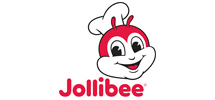Jollibee Foods
Home / Jollibee Foods
Global Food Chain Deploys NetSuite OneWorld Across 265 Stores in China

COMPANY
Jollibee Foods
LOCATION
Manila, Philippines
INDUSTRY
General Business
APPLICATIONS REPLACED
Multiple legacy and small-business solutions
LEARN HOW CLOUD ERP CAN STREAMLINE YOUR BUSINESS.

"NetSuite OneWorld gives us a way to deliver a standard platform across the organization that supports our continued growth and development."
- Jollibee Foods
CUSTOMER SUCCESS
- Cost-effective platform keeps Jollibee expansion within budget.
- Online supply ordering cut store re-stocking costs, order time from three days to one.
- Real-time visibility across territories optimizes operating, purchasing, and expansion decisions.
- Multi-language support allows China to access systems in Chinese while management sees same info in English.
CHALLENGES
- Robust growth potential threatened by fragmented, unreliable financial information.
- Aggressive expansion goals made consolidated financials essential for operations and purchasing.
- Adding licenses to the existing major-vendor ERP system run at Jollibee HQ too costly to undertake globally.
SOLUTION
- Jollibee brought in NetSuite OneWorld, in order to run multiple subsidiaries and multiple currencies in one system.
- Complete rollout to 10 stores in Vietnam took two months.
- NetSuite secured China accreditation and localization to support growth in China.
- 265 stores rolled out in China; more coming in U.S., other countries.




























